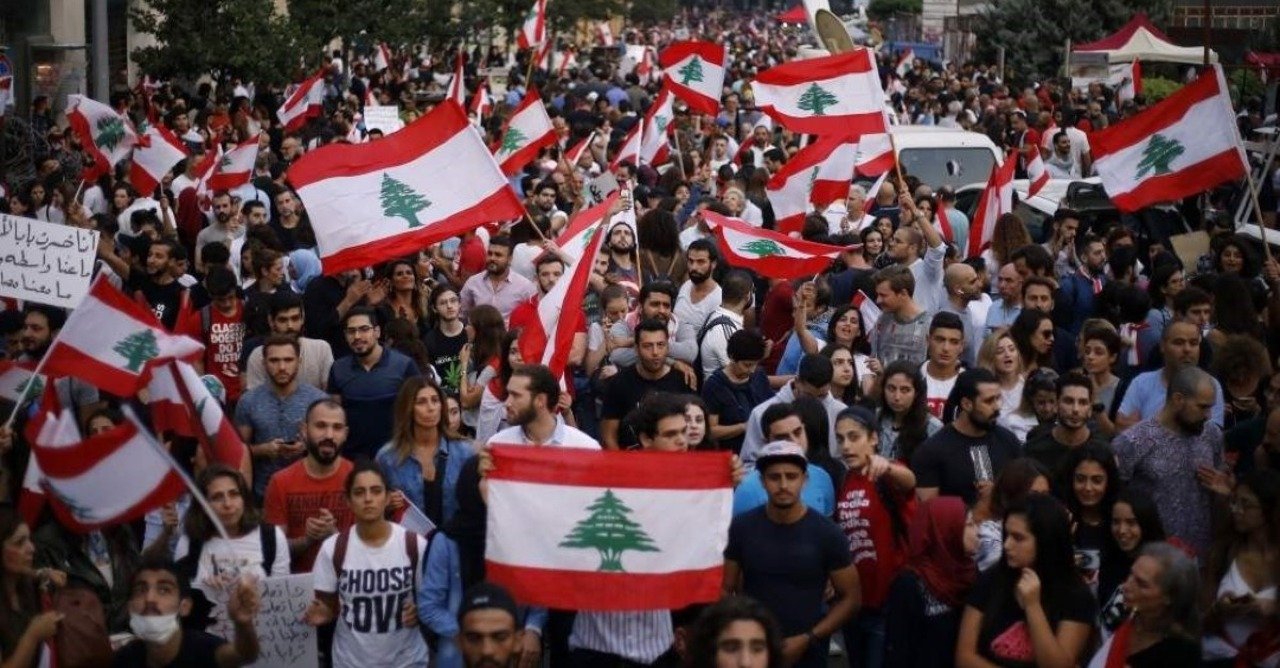Lebanon’s currency crashed on Sunday reaching a new low against the dollar, as the country’s financial meltdown continues: Food is unaffordable, hospital are closed, petrol is unavailable, the internet is down, capital controls are to be established, coronavirus rages, and electricity is scarce.
And still elected officials do nothing.
Market dealers said the Lebanese pound was trading at around 15,150 to the dollar down from about 13,500, losing around 90 per cent of what it was worth in late 2019, when Lebanon’s economic and financial crisis erupted, Reuters reported.
This is everyday Life in Lebanon now.
Food inflation is at 400 per cent. For the last month, fuel has been scarce commodity and people are queuing at petrol stations that are only operating for two hours a Day.
“I have tried to find a special milk prescribed for my newborn baby for the last 4 days, but was not able to find any. What can I do If I am unable to breastfeed? How can a country run out of such products? This is unbelievable” Carine a 30- year-old mother told the Cyprus Mail.
For another woman, finding drugs at the pharmacy was also impossible “I have looked for PROFINALE that I use for muscular pain in almost every pharmacy I know. It has simply vanished. Even in wartime we could find it” Therese says.
The social security system that was somehow the last safety net for more than 60 per cent of the Lebanese people who now have plunged below poverty line has declared that it will “only cover the hospitalisation of citizens that is classified as highly urgent,” the institutions explain in a statement issued last week. It has become necessary to “protect the hospitals” and refuse patients. The hospitals had already declared that they are running out of medical supplies due to the high cost of importing them
Meanwhile, the coronavirus has hit the country hard. The country has also been hit hard by the coronavirus pandemic, with over 542,000 cases and 7,790 deaths as of Monday. Yet only seven per cent of the population has received the vaccine to date.
The head of state-owned telecoms operator OGERO has declared that Lebanon is to expect large-scale internet outages that could cripple even the central bank, the economy and vital infrastructure.
There are regular power cuts mainly due to the fact that the central bank of Lebanon is rationing the last amount of dollars it still has (estimated at $15 Billion) and by doing so is not providing enough funds to import fuel into the country.
Electricity issues have always plagued Lebanon since the end of the civil war in 1990, however recently the power cuts have reached a new record of 20 hours a day.
The central bank has loaned the electricity authority $200 million. This, however, will last perhaps for a few months.
“In the absence of any political solutions, we’re just kicking the can down the road,” Marc Ayoub, Energy Researcher at the American University of Beirut’s Issam Fares Institute, explained. “If we pay $200 million, we carry on for two or three more months, then what? We cannot continue like this.”
The head of the Iranian-backed armed Lebanese political group Hezbollah took everyone by surprise last week when he announced that he was ready to go to Iran to seek fuel to help Lebanon deal with the shortage. However, the terms under discussion were not agreed to, and the arrangement has fallen through.
In an attempt to slow down the ongoing apocalyptic collapse of the economy, The Lebanese Parliament’s Finance and Budget Committee approved last week a long-awaited draft law on capital control. But the law has not yet been passed.
The law would formalise restrictions on cash withdrawals and transfers for Lebanese depositors.
Senior Economy Analyst Dr. Jassem Ajaka explains to the Cyprus Mail: “It would appear that stopping the delivery of dollars from the central bank would have a negative impact on the next government if it takes such a decision. So the (hidden) decision is that all the political forces vote on a law which dilutes the responsibilities and therefore facilitates the formation of government.”
Ajaka also expressed doubts about whether capital controls could be effectively enforced.
“Capital controls consists of a set of actions aimed at reducing the outflow of capital from the country. Its actions include, among other things, economic, financial, monetary, operational, legal actions. However, the bill presented by the parliamentary committee only includes the monetary side constrained by the central bank figures.
On the political Level, Lebanon’s deadlock has been blocking the formation of a new government since the Beirut port blast that took place on the August 4, 2020.
According to Transparency International’s Corruption Perception Index, Lebanon ranks 149 out of 180 countries, indicating high corruption levels. And the World Bank has blamed the economic disaster on a “deliberate lack of effective policy action by authorities,” according to its fall 2020 report.
“If the political deadlock continues, we predict a rapid deterioration of the economic and social situation as the constitution has given the government exclusive power over economic decisions.
Political analysts speak of a deadlock looming over the next elections. The country cannot stand all this time. So chaos awaits us!”says Ajaka.







Click here to change your cookie preferences